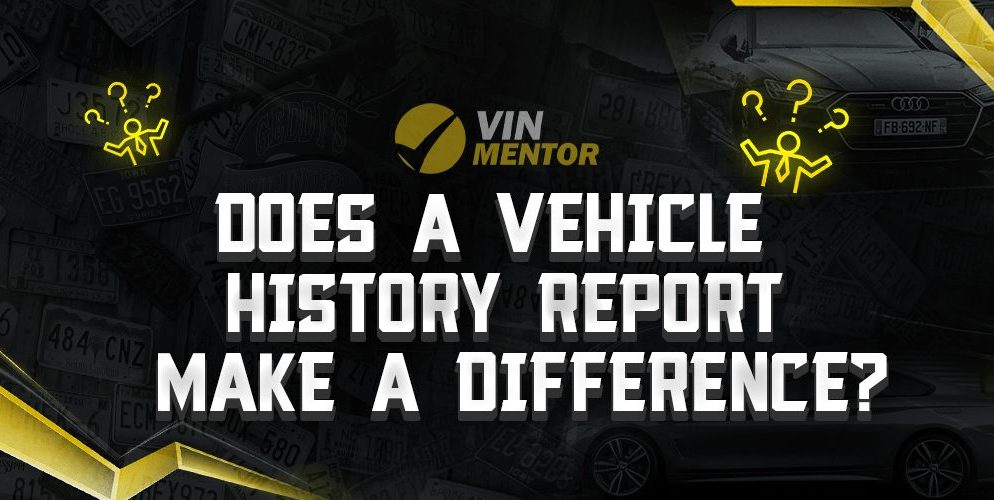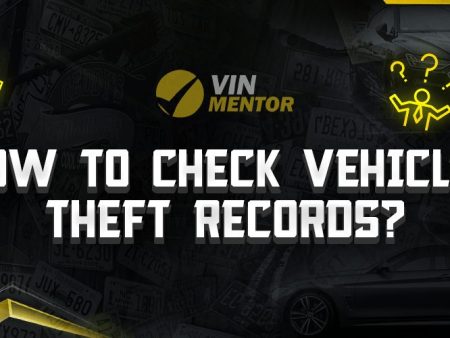

When it comes to buying a used car, there are a lot of factors to consider. One of the most important is the vehicle’s history. A Vehicle History Report can provide valuable information about a car’s past, including accidents, repairs, and other issues. But does a Vehicle History Report make a difference? Read on to find out.
Key Takeaways
- Buying a used car can be risky if you don’t know its history.
- A Vehicle History Report can provide valuable information about a car’s past.
- Not all Vehicle History Reports are created equal.
- It’s important to use a reputable source for Vehicle History Reports.
Can a Vehicle History Report Have an Impact on the Decision to Buy a Car?
The short answer is yes, a Vehicle History Report can make a big difference when it comes to buying a used car. Here are some reasons why:
- Reveals Past Accidents: A Vehicle History Report can reveal whether a car has been involved in any accidents, including the severity of the accident and the extent of damage to the vehicle. This information is important because it can affect the safety and reliability of the car. Even minor accidents can cause hidden damage that may not be immediately apparent, and a car that has been in a serious accident may have long-term mechanical issues. Knowing about past accidents can also give you an idea of how well the car has been maintained. If a car has been involved in multiple accidents, it may be a red flag that the car has not been well taken care of.
- Highlights Repairs and Maintenance: A Vehicle History Report can also provide information about repairs and maintenance performed on the car. This can be helpful in determining how well the car has been taken care of over the years. If a car has had regular maintenance and repairs, it is more likely to be in good condition and run well. On the other hand, if a car has a history of neglect or deferred maintenance, it may be more prone to breakdowns and mechanical issues. A Vehicle History Report can also reveal whether a car has had any major repairs, such as engine or transmission replacement, which can affect the car’s value and reliability.
- Uncover Title Issues: A Vehicle History Report can also uncover any title issues the car has had, such as salvaged or rebuilt titles. These issues can affect the car’s value and resale potential, and may also impact the car’s ability to be insured. A salvaged or rebuilt title means that the car has been deemed a total loss by an insurance company, and has been rebuilt or repaired. While these cars may be cheaper to purchase, they may have hidden damage and may be more difficult to insure. It is important to be aware of any title issues before purchasing a used car to avoid potential problems down the road.
- Catch Odometer Rollbacks: Odometer rollbacks are unfortunately still common practice by some dishonest sellers. These rollbacks can make it appear that a car has fewer miles than it actually does, which can affect the car’s value and reliability. A Vehicle History Report can help catch odometer rollbacks by providing information about the car’s mileage history. The report can show whether the car’s mileage is consistent with its age and condition, and can also reveal whether the odometer has been tampered with or replaced.
It’s important to note that not all Vehicle History Reports are created equal. Some reports may be more comprehensive than others, and some may not include all the information you need to make an informed decision about a car. So, it’s very important to use a reputable source for Vehicle History Reports.
Conclusion
Buying a used car can be a smart financial decision, but it can also be risky if you don’t know the car’s history. A Vehicle History Report can provide valuable information about a car’s past, including accidents, repairs, and title issues. This information can help you make an informed decision about whether to buy the car or not. When buying a used car, it’s important to use a reputable source for Vehicle History Reports, which you can find in our list of recommended Vehicle History Report Providers, to ensure you get the most accurate and comprehensive information possible.
FAQ
What is a Vehicle History Report?
A Vehicle History Report is a document that provides information about a car’s past, including accidents, repairs, and title issues. It can also show whether the car has had any major repairs or odometer rollbacks.
Where can I get a Vehicle History Report?
You can obtain a Vehicle History Report from a variety of sources, including online providers, car dealerships, and private sellers. It’s important to use a reputable source to ensure you get accurate and comprehensive information.
How much does a Vehicle History Report cost?
The cost of a Vehicle History Report can vary depending on the provider and the amount of information included in the report. Generally, reports can range from $10 to $40 or more.
Can a Vehicle History Report guarantee that a used car is in good condition?
No, a Vehicle History Report cannot guarantee that a used car is in good condition. However, it can provide valuable information about the car’s past, which can help you make an informed decision about whether to buy the car or not.
Is it necessary to get a Vehicle History Report when buying a used car?
While it’s not legally required to get a Vehicle History Report when buying a used car, it’s highly recommended. A Vehicle History Report can provide important information about the car’s past, which can help you avoid potential problems and make a more informed decision about whether to buy the car or not.












